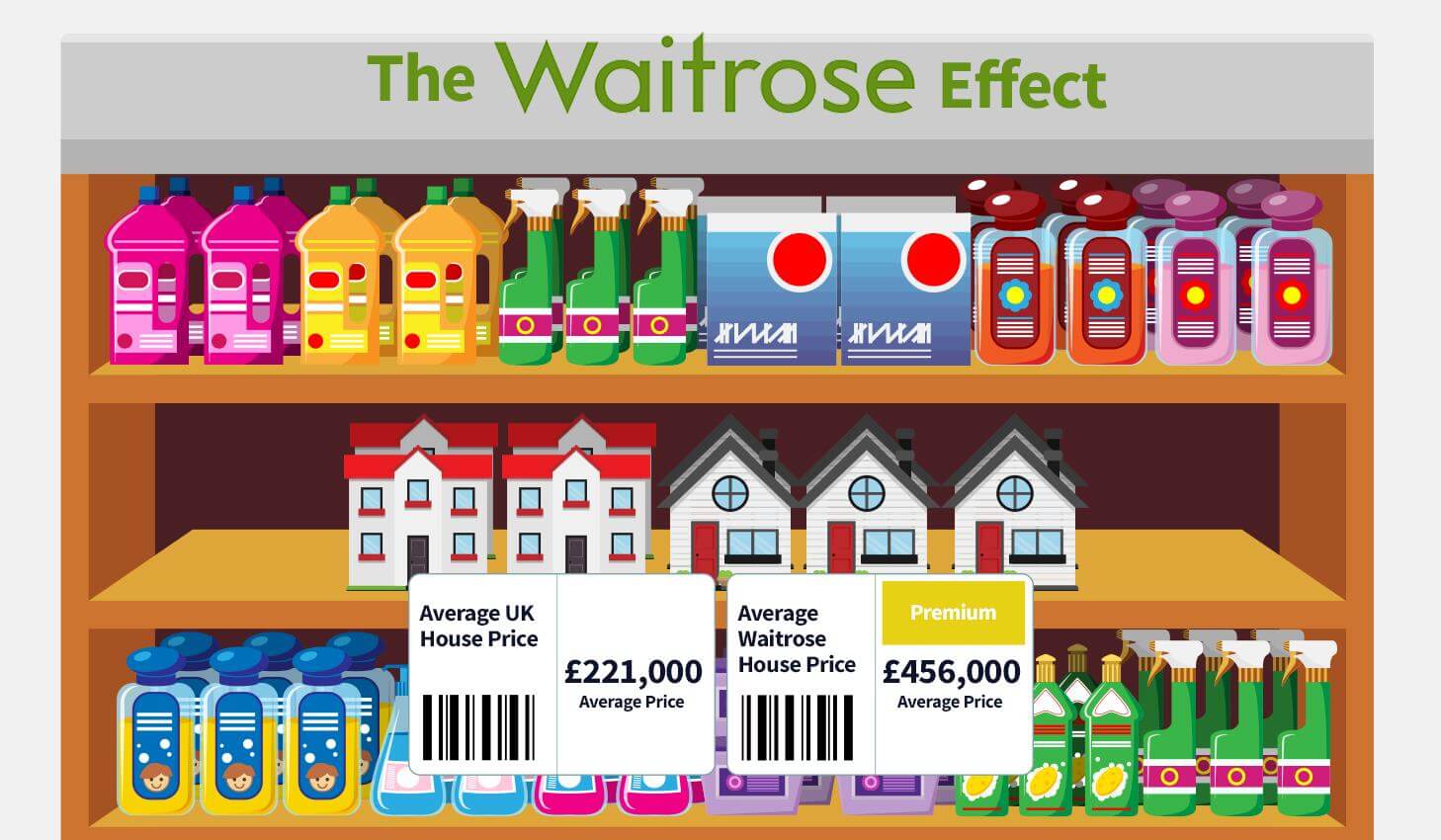It’s well known that the close proximity of a house to sought-after amenities can help increase a property’s price potential. Previous research by eMoov found that a mainstream supermarket, such as Waitrose, was the second most important amenity to UK buyers (30%) – beaten only by the British corner shop.
Waitrose opened its first supermarket in Streatham back in 1955. Since then the average house price has increased by over 11,000% and now tops £461,000 in Streatham and £220,000 nationwide.
The allure of a Waitrose is clearly more appealing to Britain’s upper class than a discount store such as Aldi, with one resident of Poynton in Cheshire quoted last week saying “I thought we were making real progress as a community with the opening of Waitrose in 2012, however with the opening of Aldi I feel as though we are taking a step back into the lower class.”
But how beneficial is the presence of a Waitrose store to the surrounding areas and does its middle to upper-class image rub off on property prices?
eMoov’s research found property surrounding Waitrose stores costs £456,000 on average, more than double the UK average of £221,254. The most expensive? Where else but Kensington in Chelsea, where the average property around the Waitrose store will set you back nearly £2.6m.
But it isn’t just London’s prestigious areas that are benefiting from the Waitrose effect. The property surrounding the Waitrose supermarket in Wolverhampton has the lowest average house price across all UK stores at £118,000. However, over the last year prices in the area have increased by 9% in value, compared to just 6% in Wolverhampton as a whole.
Waitrose Southsea in Portsmouth has also enjoyed an increase in surrounding property values of 5% in the last year, despite the area as a whole only increasing by 3% in the same timeframe. Waitrose’s Stirling store in Scotland has seen surrounding property outperform the local market by 1% in the last year, as has Waitrose Lincoln.
Founder and CEO of eMoov.co.uk, Russell Quirk, commented:
“In a market as competitive as the UK’s, savvy home sellers will use any bargaining chip they can to justify a higher asking price and, close proximity to a desirable amenity, will always act as such a chip.
Although Waitrose positions their stores in more affluent areas, it is clear that the presence of a Waitrose supermarket can influence surrounding property values in a positive manner and in many cases, can see homeowners double the price potential of their property.
Waitrose is a bi-word for ‘well to do’ and therefore for those that place a high importance on such an image, a walk to the local Waitrose justifies a higher asking price to similar nearby properties.”
























